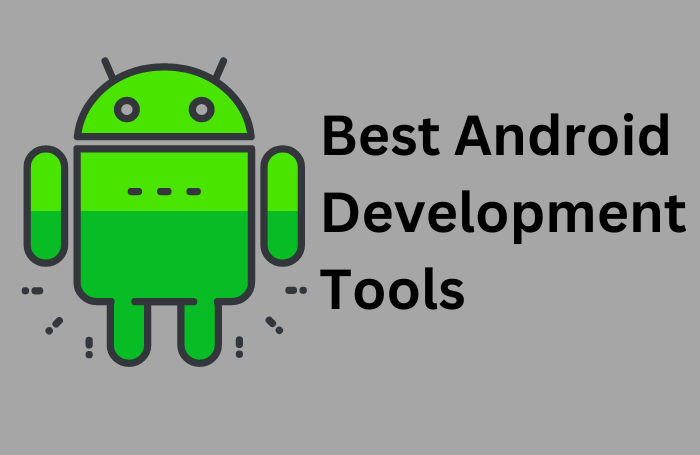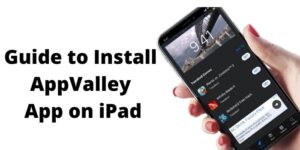With over 3.9 billion people using Android devices worldwide, building high-quality Android solutions assures great reach and more significant revenue potential. Also, with a global market share of around 70%, you can consider Android the most widespread operating system. However, let me tell you a bitter truth – Android development is not among the most convenient domains of computer science.
Regardless of whatever operating system you opt for app development, it’s imperative to follow the rigid architecture and extensive guidelines set forth by the respective organization. No stress! Because the output of such extended programs is quite rewarding and lucrative concerning satisfaction and revenue. And to do coding and achieve maximum efficiency, you should understand if you’re a beginner or a pro in developing. However, providing smooth native Android experiences needs the deployment of the proper amalgamation of development tools, debugging tools, emulators, libraries, and software suites.
Well, in this article, I’ve compiled the most essential, modern tools that help streamline every stage of Android development, from designing and testing to deployment and maintenance. From my experience in the development world, investing in these Android development tools is best for simplifying coding, integration, and release management.
What are Some of the Best Android Development Tools?
Let’s look at some of the best Android development tools that everyone in the IT industry, from newcomers to grizzled professionals, must be accustomed to for writing high-quality codes and maximizing productivity.
Sentry
While users are becoming increasingly intolerant of app delays or crashes, Sentry helps Android developers detect, examine, and rectify any issues. By having detailed diagnostic data and fully automated crash reporting in test and production environments, developers easily identify the tricky code sections and pinpoint the problems.
Recognizing the performance anomalies, issue warnings, and regression on time helps enhance debugging. This tool also offers data representations and stability patterns, assisting engineers in prioritizing their work.
React Native
Being one of the most prominent software frameworks, its declarative nature helps build top-notch applications for Android. JavaScript APIs and React components make accessing the device sensors, haptics, geolocation, and cameras seamless, bridging the gap between mobile and web development.
React Native also allows the business logic code and app UI layers to be shared among different operating systems through component abstraction. It is also rapidly gaining traction as the new standard of cross-platform development, helping address the critical mobile OS ecosystems because of its extensive resources, faster build cycles, and code reusability on multiple platforms.
SonarQube
SonarQube is quite a prominent tool for security analysis and code quality. It provides integrated remedial advice, metrics for unit test coverage, and extensive static code analysis, among many other features. It helps accomplish the specific quality gates of an organization through configurable rule profiles before production.
Also, thanks to deep IDE connections, developers can resolve the issues simultaneously when they code. Android users are looking for resilient and reliable apps, so you can enjoy accountability by including SonarQube in your development lifecycle!
Android Studio
There is no better tool for Android development in 2024 than the one-and-only Android Studio. It was also Google’s formal integrated development environment (IDE). It provides a user-friendly, integrated interface that handles every aspect of end-to-end development, from planning and development to debugging and testing and publishing new app updates.
In addition to streamlining settings, the project-centric structure expedites work with rich editor features like intelligent code completion, a built-in GitHub connection, and an extensive library of third-party plugins. Android developers can’t live without Android Studio Electric Eel, particularly with the current version’s emphasis on improving the UI builder, App Bundle, and code quality connectors.
Jetpack Compose
Jetpack Compose the state-of-the-art Android UI toolkit that utilizes a declarative reactive programming style to shift how native interfaces are built. Like SwiftUI and React, Compose helps you create responsive user interfaces utilizing composable functions. These functions optimize the UI in the background as soon as the app state changes.
Compose also helps enhance effectiveness via asynchronous processes and minimize verbosity, unlike standard XML patterns utilizing reusable UI components. Productivity becomes terrific, all thanks to interactive, stateful previews, simplified animations, and robust theming support.
Kotlin
Kotlin is a modern, statically typed, general-purpose programming language that resolves repetitive verbosity and null safety in programming while also interacting smoothly with current Java programs.
The Kotlin syntax is concise and expressive, merging cross-platform and object-oriented functional programming concepts. And because of its lively community, strong tooling support, and conciseness, Google decided to make it the top Android programming language of choice.
Firebase
When developing apps, Firebase helps integrate all the necessary features, such as crash reporting, user authentication, cloud messaging, storage, and real-time databases. Managed cloud services allow developers to prevent doing complex coding for data infrastructure.
You can easily publish fully operational applications without investing in backend development, all thanks to Firebase’s ability to provide real-time analytics, stream application logs, securely manage app data, and give push alerts. Hence, the developers adore it due to Firebase’s tight interaction with Android.
Genymotion Android Emulator
Validating user experience flows and application functionality across different versions of Android OS and devices is getting more challenging as software is getting more complicated. Here, Genymotion offers feature-rich, first-class modern Android virtual devices for iterative testing even though the inbuilt Android emulator has advanced.
And when we talk about customized hardware configuration simulations, multi-device preview creation, unique use-case testing gears, rapid testing of Google Play Services APIs, and intricate network modeling, Genymotion outshines. Hence, Genymotion is one of the best Android testing tools due to its unique capabilities and rapidness.
Summing Up!
Android development challenges are rising while user expectations and market demands continuously change. And establishing a thriving Android-first business needs specific tools that help improve productivity, provide standardization, and establish better collaboration within developers. It is crucial to use the best tools as it helps with successful Android development. Since I started my career in the IT industry, many new tools have come into the market, and the existing tools are advanced. So, it’s always essential to keep an open mind when considering new Android development tools and test them as they become popular.
Related posts :
Best Super Reminder Apps For Android!





